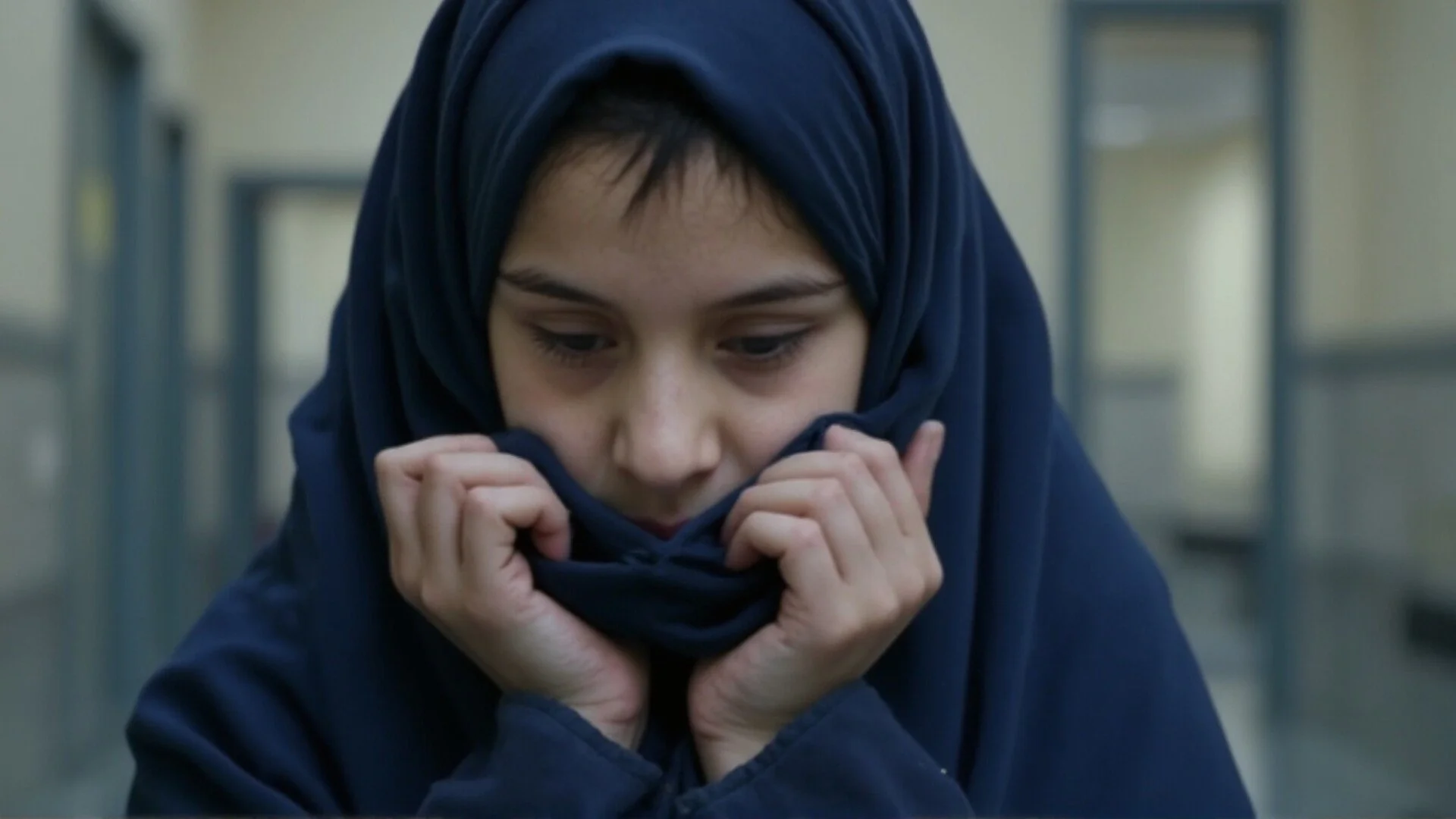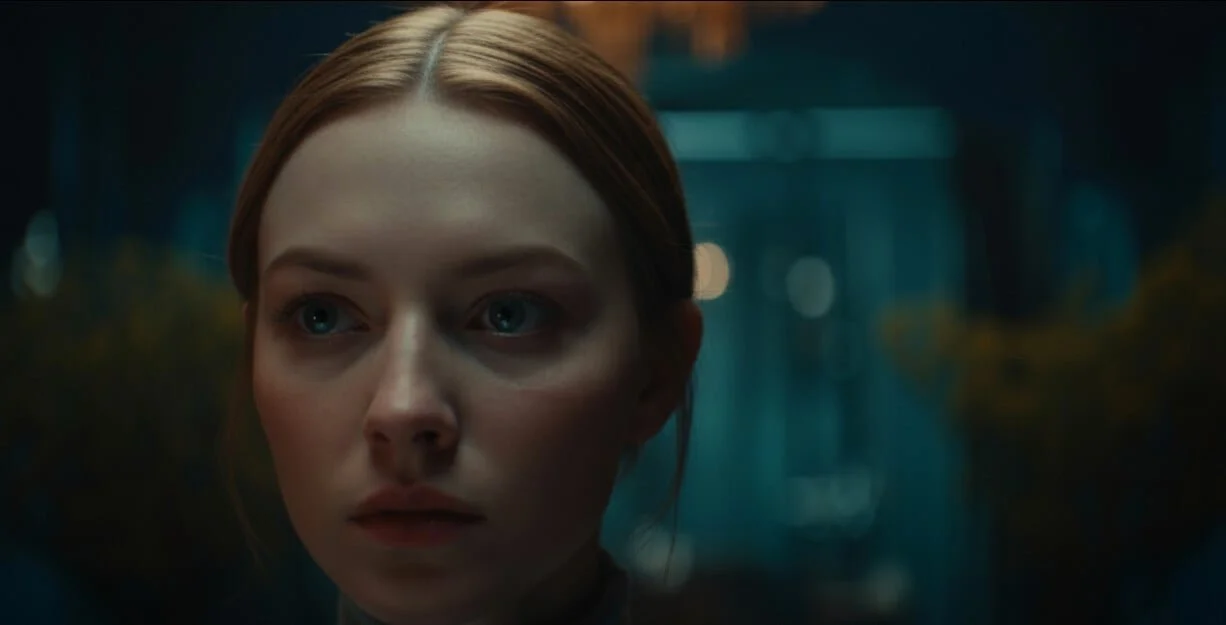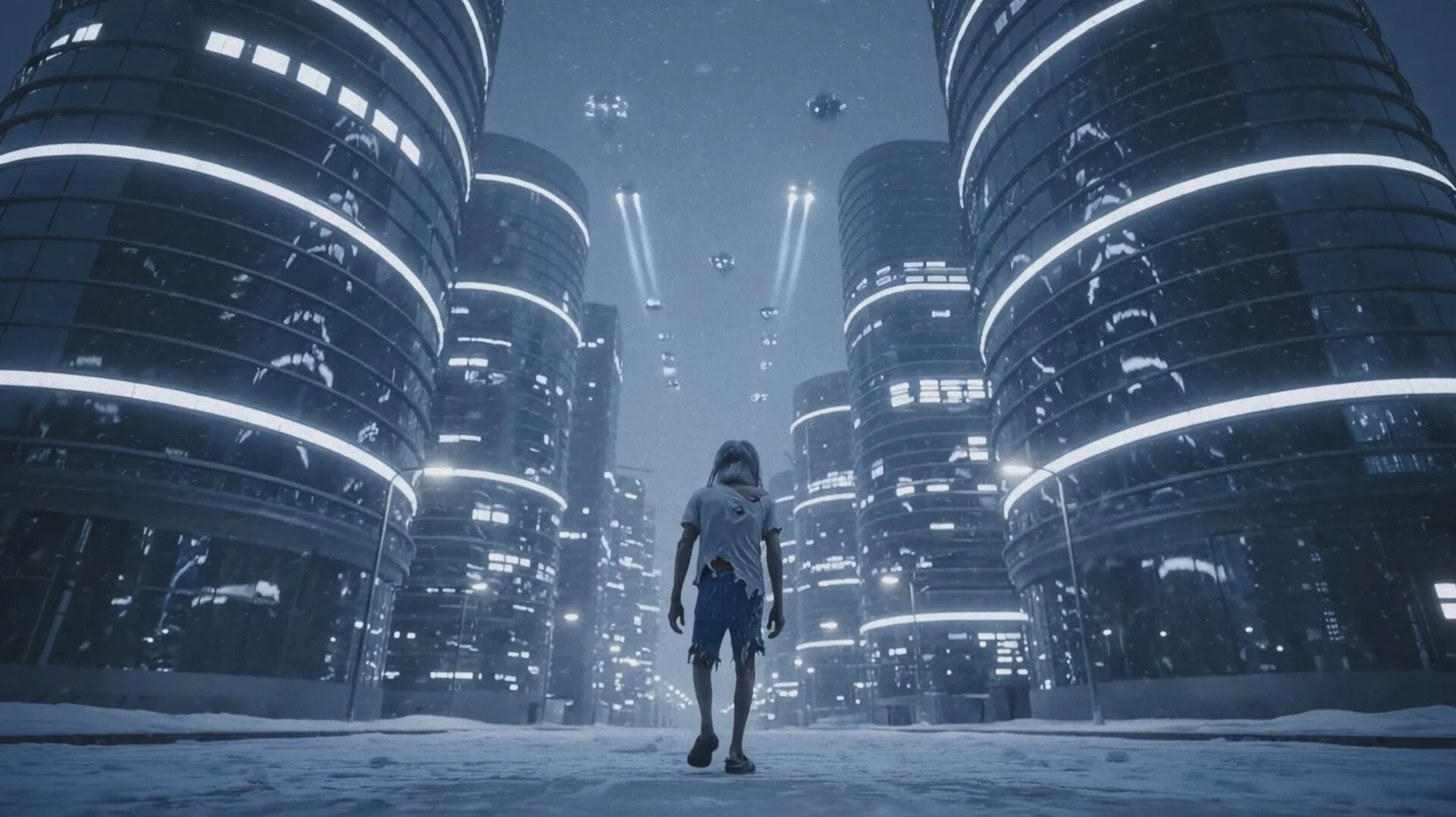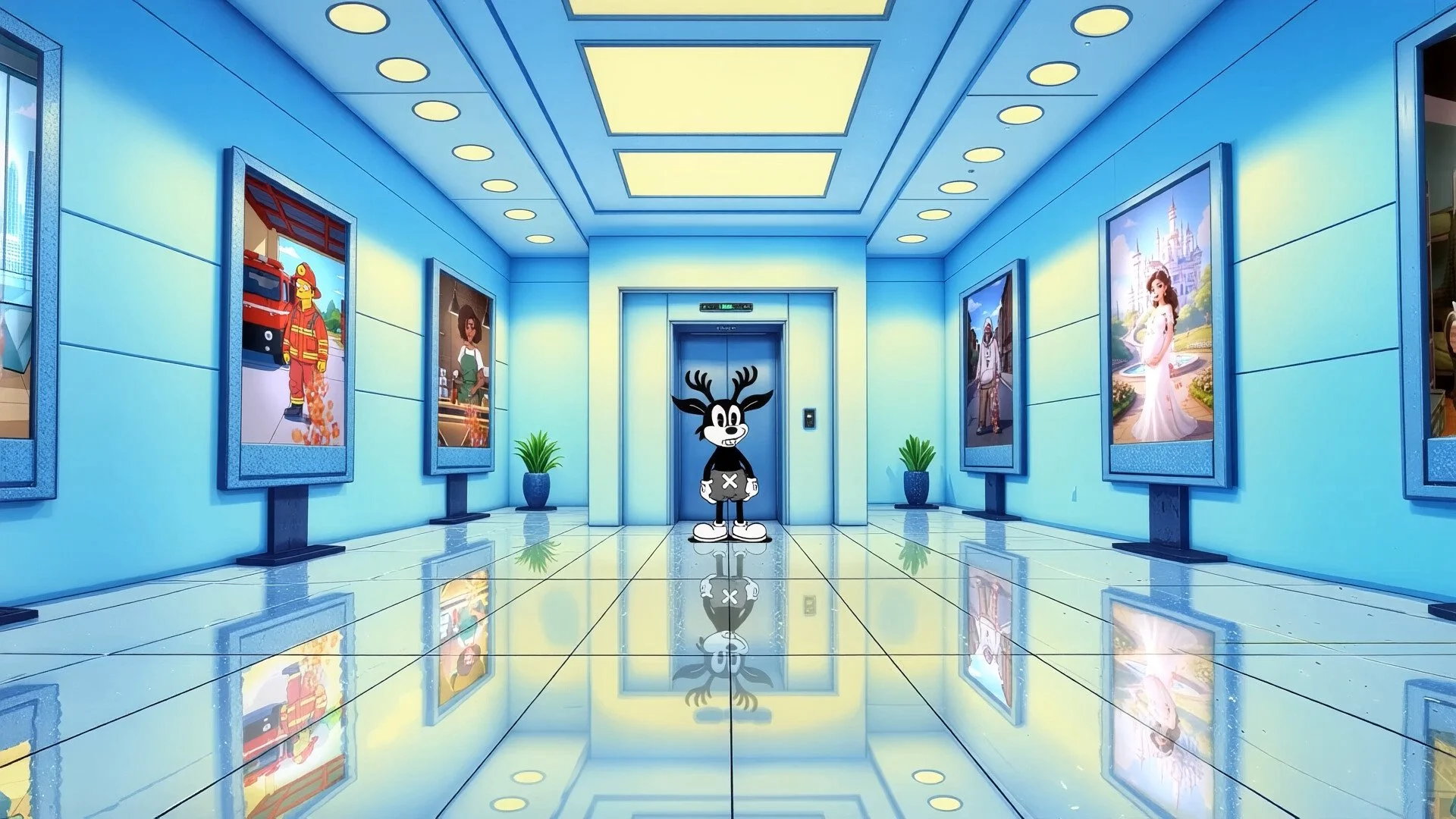AI International Film Festival: Where Every Voice Finds Its Stage
On November 16th, the historic Los Feliz Theatre became something rare in cinema: a space where demographics, resources, and traditional gatekeepers dissolved. Bert Holland's AI International Film Festival wasn't just screening films—it was dismantling barriers, one story at a time.
The numbers tell part of the story: over 65% of submissions arrived from beyond U.S. borders. But the deeper truth lives in what those submissions represent, voices that have been asking for entry, waiting for technology to catch up with their vision, and now, finally, speaking on equal ground.
This is a festival where an Iranian filmmaker, a Venezuelan visual artist, a German satirist, and suburban storytellers from anywhere stand shoulder to shoulder. No studio backing required. No privilege necessary. Just vision, determination, and a laptop.
The AI International Film Festival operates on a radical premise: your story matters, regardless of where you're from, what you look like, or what's in your bank account. The only currency here is imagination.
For decades, filmmaking has been a game of access—access to equipment, funding, crews, and distribution networks. The cost of entry kept entire continents of storytellers on the outside looking in. Women, people of color, artists from developing nations, those without industry connections—all forced to wait, to compromise, or to abandon their visions entirely.
AI hasn't just lowered these barriers. In many cases, it's eliminated them.
Among the festival's most powerful works is Iranian filmmaker Hoda Fallah's The Stain—a film that captures the atmospheric realism reminiscent of Iranian masters like Abbas Kiarostami while examining the turbulence of puberty and the quiet shame many girls inherit during adolescence.
“Upon reviewing Fallah's submission”, festival founder Bert Holland expressed, "This is the second time in a row where we have a Muslim woman talking about sensitive subjects, and coming from a country full of repression!" His observation underscores not only Fallah's artistic courage but also the growing global chorus of women reclaiming their narratives through AI-driven filmmaking.”
Written years ago as her planned second film (after the unreleased 51-minute dark-fantasy puppet film Nightmare's Parliament), the project repeatedly stalled as production costs rose faster than she could save.
When AI-generated video began trending—before it became widespread—Fallah tested a few opening minutes. She was drawn to the precision: she could recreate her school uniform exactly as she remembered it. What began as an experiment became a three-month journey. The process was far from cathartic. Fallah battled a major challenge unique to Iranian AI filmmaking: data scarcity. Visual reference material from Iran is limited compared to other countries, making believable Iranian spaces and characters difficult to generate. She was constantly stressed about running out of tokens before finishing the world—too occupied with technical constraints to focus on personal healing.
Yet the finished film carries the atmospheric authenticity she sought. As Fallah herself notes, citing André Gide: "I wish greatness were in your gaze, not in that which you gaze upon." AI, like a camera, is simply a tool. What matters most is your way of seeing.
Fallah's work stands as evidence: when you remove the obstacles, extraordinary stories emerge. She hopes viewers bring their own lived experiences to interpret the film, finding reflections of human dignity and shared humanity within its frames. Currently, she's fundraising for her next AI-driven short—a father-daughter story about an elderly man in Tehran and his daughter in New York, inspired by her own sister's migration and created as a tribute to her father.
The Stain by Hoda Fallah
The festival's lineup reads like a map of human experience—each film a window into a world that deserves to be seen:
I Am Become Death — by Steffin Flick
A psychological thriller that dives deep into the fractured mind of a hitman on the edge. Haunted by the ghost of a recent kill and mentally unraveling, an assassin targets a CEO while fighting demons far more dangerous than her mission. Flicks' direction blends noir tension with AI-generated visuals to create a stylish descent into chaos that demonstrates what AI cinema looks like when it achieves mainstream-ready execution. The film succeeds where many AI productions struggle: maintaining character consistency throughout, delivering realistic cinematic aesthetics, and pairing technical polish with a well-executed storyline. This is likely what audiences will see when AI filmmaking breaks into commercial cinema—genre storytelling that stands on its own merit, regardless of how it was made.
The Conclave — by Federico Luglio (AIMA Productions)
The Conclave reimagines one of the world's most historic rituals—the papal election—through the lens of AI cinema. Luglio crafts a world where familiar traditions hide simmering tension as cardinals navigate secrecy, politics, and the future pressing against ancient walls. The result is a hybrid of political thriller, sci-fi, and ceremonial suspense, culminating in a twist that reframes everything.
The Walk by Eric Argiro
A suburban dad's ordinary dog walk spirals into an adventure spanning six decades. What starts as a reluctant morning chore becomes a surreal journey blending comedy, fantasy, and existential reflection. The short pokes at midlife imagination and the strange truth that the mundane can open into the epic when we least expect it.
The Fifth Season by Valeria Sarcos
Valeria Sarcos expands her Moldovan artistic practice into moving image with a film that feels like stepping into myth itself. The Fifth Season drifts between identity, dream logic, and inner struggle, weaving ancient cosmologies with modern AI's uncanny presence. The film moves like a vision: surreal metamorphoses, shifting landscapes, and beings caught between worlds. A poetic meditation reminding viewers that the universe does not just surround us—it lives within us.
The Last Dream by Roya Goorkani
Born from the question What happens to the dreams of children in war?, Roya's film is a raw, intimate portrait created entirely on her own—writing, editing, voicing, and designing every element with the help of AI tools. The Last Dream captures both the silence of destroyed homes and the fragile hope that survives through imagination. Roya positions AI not as a shortcut, but as an extension of her artistic voice. Her work is an urgent call for empathy, unity, and peace—cinema that transcends borders and speaks directly to the heart.
Ocean Mirror - Yanina De Sapio
Ocean Mirror by Yanina De Sapio - A poetic yet unsettling look at global ocean pollution, Ocean Mirror balances beauty with urgency. De Sapio brings a Swiss perspective to marine ecosystems and the uncomfortable truth that harming the ocean ultimately means harming ourselves. It's a cautionary tale wrapped in mesmerizing imagery.
How Does It Feel to Be A.I.? — by Simon Meyer
Meyer delivers a reality-bending "interview" with AI-generated children who understand they aren't real. Their responses—formed autonomously by the model—range from sad to profoundly introspective. The short asks viewers to reconsider emotion, authenticity, and authorship in the age of artificial intelligence.
Bonus: iPhone 17 Pro Ad (Leaked!) — also by Simon Meyer
A satirical, hyper-digital take on tech culture's absurd evolution: phones without cameras, AI-generated memories, autonomous shopping, and ads starring your friends. Equal parts clever and uncomfortably plausible.
Pexote Jack Ohio — by Hoyt Dwyer
A washed-up 1930s cartoon jackalope discovers he's been replaced by a viral, optimized AI clone—and chaos follows. Dwyer, whose work has earned Cannes Lions, Clios, and AICP honors, blends old-school animation charm with a modern existential twist. A sharp commentary on legacy, relevance, and reinvention.
Eat the Rich — by Tiffani Lee Joseph
This studio-commissioned animated short takes a satirical bite out of capitalism. With wit and style, Joseph skewers modern power structures in a film that feels both timely and timeless
Women at the Forefront
One of the festival's most significant markers was the surge of women filmmakers stepping forward. In an industry that has historically marginalized female voices, particularly in directing and technical roles, this shift represents more than progress—it represents possibility.
Hoda Fallah, Valeria Sarcos, Roya, Yanina De Sapio, Tiffani Lee Joseph—these aren't tokens or quotas. They're filmmakers with urgent stories who found in AI a medium that doesn't ask permission, doesn't require connections, and doesn't care about outdated hierarchies.
The festival proved what happens when you judge work by its merit, not its maker's resumé.
No Gatekeepers, No Bias, No Barriers
What makes the AI International Film Festival genuinely revolutionary isn't the technology—it's the philosophy. This is a community built on a simple, powerful idea: creative voices with something to say deserve to be heard.
Not the voices with the most funding.
Not the voices with the right connections.
Not the voices from the "right" backgrounds.
All voices.
The festival operates without the biases that have shaped traditional cinema for over a century. Geographic location doesn't matter. Socioeconomic status doesn't matter. Race, gender, nationality, religion—none of it determines whose story gets told.
What matters is vision. What matters is heart. What matters is having something to say and the courage to say it.
AI isn't replacing human creativity—it's amplifying it. It's giving a microphone to those who've been shouting into the void. It's handing tools to artists who've been told their dreams are too expensive, too niche, too foreign, too different.
The filmmakers at this festival aren't using AI to bypass the creative process. They're using it to reclaim it.
Hoda Fallah spent three months wrestling with AI tools to birth her vision. Roya wrote, edited, voiced, and designed every frame alone. These aren't artists taking shortcuts—they're artists refusing to let anything stand between them and their stories.
The result is cinema that feels liberated—bold, personal, uncompromising, and bracingly diverse.
The festival attracted not only filmmakers but also innovators working at the intersection of technology and creativity, each offering insights into AI's role in reshaping artistic expression.
Actress and fashion technologist Anina Net attended the AI International Film Festival, offering a perspective shaped by her long-standing work at the intersection of creativity and emerging tech. Known for pioneering wearable technology and building digital versions of herself across gaming, AR, and AI, Anina sees artificial intelligence not as a threat, but as an essential creative accelerator.
Emerging film director Jonathan Perry, also in attendance, shared how AI has streamlined his creative process: "It usually takes a year, hundreds of crew, and a medium budget to make a short film professionally. My film Railbound took us six weeks, around thirteen talented crew, and a quarter of the budget. It has completely reshaped how we go about the entire production pipeline, quicker and cheaper, allowing more creative thought towards the most important aspect: story."
Perry's experience echoes what the festival demonstrated throughout: AI isn't replacing the filmmaking process—it's removing obstacles that once stood between vision and execution, allowing creators to focus on what matters most.
A Festival Pointing Toward Tomorrow
The AI International Film Festival revealed something profound: when you remove barriers, when you strip away bias, when you create a truly level playing field—the stories that emerge are richer, stranger, more beautiful, and more necessary than anything a closed system could produce.
From Iranian childhood memories to Venezuelan mythologies, from war-torn testimonies to papal intrigue, from suburban fantasies to ecological warnings, from AI consciousness to capitalist satire—this year's lineup proved that every culture, every background, every perspective has something irreplaceable to contribute to cinema.
This isn't a festival celebrating AI for AI's sake. It's a festival celebrating what happens when technology finally serves the storyteller instead of the system. When the medium opens wide enough for everyone to walk through.
AI is not the end of storytelling. It's the beginning of universal access to it.
And the AI International Film Festival stands as both witness and invitation: Your voice matters. Your story deserves to be told. The stage is open.
Come speak.
Credits - Award Winners
• The Fifth Season — Valeria Sarco
Awards: Best Art Direction, Best Cinematography
• The Conclave — Federico Luglio
Award: Best AI Animation Short
• The Walk — Eric Argiro
Awards: Best Editing, Best Film, Most Fun, Best Use of AI (tie)
• Pexote Jack Ohio — Hoyt Dwyer
Awards: Best Comical Short, Best Animated Short
• The Stain — Hoda Fallah
Awards: Best AI Film, Most Surprising
• THE LAST DREAM — Roya Goorkani
Awards: Best Picture, Best Student Film, Best Message, Best Use of AI
• MAMMOTH HUNTERS SEASON 1 — Luboš Withalm
Award: Best Web/TV Series/Pilot
• Plastics — Amir Bozorgzadeh
Award: Best Narrative Short
• Fragile Little Drum — Eugen Derzapf
Award: Best Humanoid Film
• How Does It Feel to Be AI? — Simon Meyer / Florida Entertainment GmbH
Awards: Best AI Film, Best Film, Best Message, Most Surprising, Best Use of AI (tie)
• I Am Become Death — Steffin Flickinger
Award: Best Thriller
• Ocean Mirror — Yanina de Sapio
Award: Best AI Short
• iPhone 17 Pro Ad LEAKED! — Simon Meyer / Florida Entertainment GmbH
Awards: Best Comedy, Most Fun, Best Use of AI
• Project Lament — Hagar Shoval
Award: Best Screenplay
• Demon of Dream — Xiaofa Li
Award: Best Story
• Eat the Rich — Tiffani Lee Joseph
Award: Best AI Animation Short
• Verdelis & Mycos — Vanessa Rosa
Award: Best Musical
• The Dulcinée Dialectic — Tao Ruspoli
Award: Best Documentary Feature
Note: Some films listed above—but not highlighted in this feature—were not screened at the AI International Film Festival due to time constraints.








